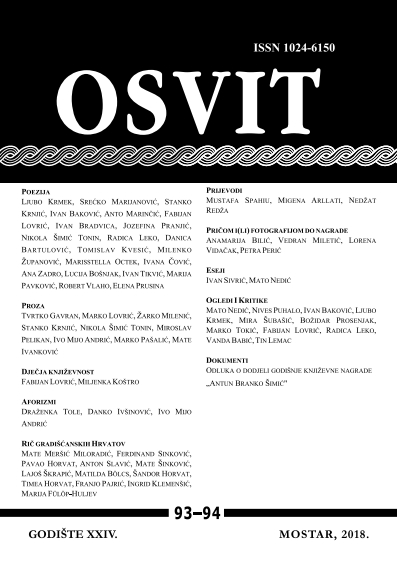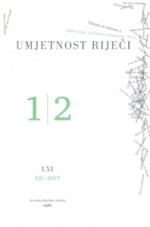
We kindly inform you that, as long as the subject affiliation of our 300.000+ articles is in progress, you might get unsufficient or no results on your third level or second level search. In this case, please broaden your search criteria.



















Bearing in mind a problematic historical and contemporary reception of Kovačić’s novel In the Archives (U registraturi), the paper discusses its complex aesthetics from a rarely applied interpretative perspective. A series of parallels with Europe’s most famous educational novel, Rousseau’s Emile, or On Education (Émile, ou De l’éducation), reveal a strong relation with the Bildungsroman, in wider sense of the term. Narration about education and a lifelong upbringing of the protagonist bears traces of Romanticism and Enlightenment, but the most important aspects of the novel are defined by realist aesthetics, and harbinger modernist procedures and topics (narrative duration and order, psychological depth, illness, trauma, etc.). In this context, it is argued that In the Archives is an anti-educational modernist novel, which testifies to the epochal clash between the individual desire and social praxis, i.e. to a continuous impossibility to realise a stable existence and liberated humanity, which is the key paradigm of the Bildungsroman.
More...
The paper avoids interpreting Krleža’s play Salome (Saloma) through the usual lens of Krleža’s memoirs Bygone Days (Davni dani), or the author’s numerous claims about the meaning of the text. Instead, in the author’s ever-changing formulation of the final meaning of the text, the interpretation recognizes the same procedures that are used by Salome for seducing and manipulating men surrounding her in the play. Salome is a supreme orator in the play, always conscious of her use of language, of the repercussions of her speech and of the textuality of the world she inhabits. The paper suggests that a method for analysing the language of the play can be found in the discursive mechanisms of Oscar Wilde’s renowned play Salomé, as a prime example of the decadent use of language, although Wilde’s influence on Krleža’s play has mostly been disputed. The paper argues that the influence of Wilde’s aestheticism is not visible in the adoption of typical motifs, characters or plot, but in the autonomous and self-reflective language play in Krleža’s text.
More...